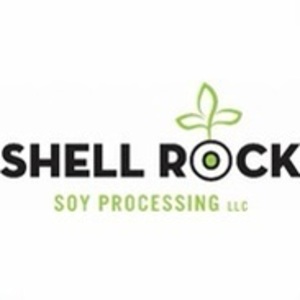Shell Rock Soy Processing to supply soy oil to Phillips 66

April 21, 2021
BY Shell Rock Soy Processing LLC
Shell Rock Soy Processing LLC has signed an agreement with Phillips 66 to supply soy oil for sustainable fuel production, including renewable diesel. This innovative partnership with the petroleum industry creates new opportunities for Iowa farmers.
“A huge shift is underway in the energy industry that’s driving demand for soy oil,” says Mike Kinley, CEO of Mid-Iowa Cooperative, a developing partner of SRSP. “Working with Phillips 66 is a key step to help Iowa farmers benefit from the next level of sustainable energy production.”
When SRSP becomes operational in late 2022, it will produce around 4,000 barrels of soybean oil per day. Phillips 66 has an agreement to purchase 100 percent of the plant’s production of soybean oil that can be used to make renewable fuels.
The deal is the first by Phillips 66's new Emerging Energy organization, which launched in January 2021. Phillips 66 has also invested in SRSP, giving it a minority ownership stake in the plant.
“This strategic investment expands our reach into the value chain for renewable diesel, which is projected to experience significant growth as the world transitions to a lower-carbon energy mix,” said Heath DePriest, Phillips 66 vice president of emerging energy.
Advertisement
Advertisement
Renewable diesel is chemically similar to petroleum diesel, but it’s 100 percent renewable and sustainable. This direct substitute for diesel fuel is refined from lower carbon and renewable materials, including soy oil.
A variety of energy companies, including Phillips 66, are retrofitting existing oil refineries to produce renewable fuels. Phillips 66 unveiled plans last year to convert its Rodeo Refinery in the San Francisco area into one of the world’s largest renewable fuels facilities, capable of producing 800 million gallons per year of renewable diesel, renewable gasoline and sustainable jet fuel from used cooking oils, fats, greases, vegetable oils and other feedstocks. If approved, the project would be completed in early 2024.
“Energy companies are sprinting towards renewable diesel production,” Kinley said. “SRSP will help Iowa soybean farmers power these new opportunities.”
Diversifying the local ag economy
Advertisement
Advertisement
When operational, SRSP will crush approximately 40 million bushels of soybeans annually, or 110,000 bushels daily. In addition to the soybean oil, SRSP will produce more than 900,000 tons per year of soybean meal and hulls for livestock feed.
Local cooperatives will originate soybeans from farmers, and SRSP will buy soybeans directly from farmers. SRSP’s close proximity to the Iowa Northern Railway will allow rail cars to be unloaded with soybeans and loaded with soybean meal and soybean oil.
SRSP will bring Butler County and surrounding areas into the center of the global ag economy while diversifying the local economy. “We’ve already been getting calls from job seekers wanting to know if SRSP is hiring,” Kinley said. “We’re excited to make SRSP a reality that will benefit the region for decades to come.”
Related Stories
The USDA significantly increased its estimate for 2025-’26 soybean oil use in biofuel production in its latest World Agricultural Supply and Demand Estimates report, released July 11. The outlook for soybean production was revised down.
The U.S. Energy Information Administration maintained its forecast for 2025 and 2026 biodiesel, renewable diesel and sustainable aviation fuel (SAF) production in its latest Short-Term Energy Outlook, released July 8.
XCF Global Inc. on July 10 shared its strategic plan to invest close to $1 billion in developing a network of SAF production facilities, expanding its U.S. footprint, and advancing its international growth strategy.
U.S. fuel ethanol capacity fell slightly in April, while biodiesel and renewable diesel capacity held steady, according to data released by the U.S. EIA on June 30. Feedstock consumption was down when compared to the previous month.
XCF Global Inc. on July 8 provided a production update on its flagship New Rise Reno facility, underscoring that the plant has successfully produced SAF, renewable diesel, and renewable naphtha during its initial ramp-up.
Upcoming Events










